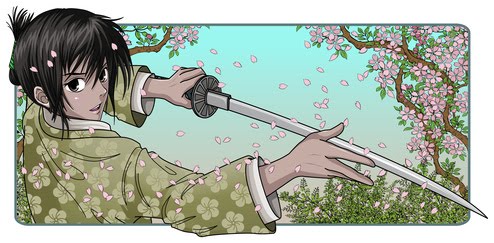A few people have mentioned to me that the Emily Kane series
has become much darker, and even depressing in Book 6 – especially Timothy
Richley, who has sent me some insightful emails on this subject. He suggests
that the darkness seems to have entered Emily’s heart right around the time she
went to Nepal, and ever since she has been overwhelmed by remorse for all the
dead bodies she leaves in her wake, and is even preoccupied by fantasies of her
own death.
I think Timothy’s right about this, and I’ve also been
feeling a need to turn Emily’s thoughts onto sunnier paths. [A side-note: I’m
not entirely in control of this. Emily herself often dictates events as much as
I do. If this makes no sense to you, try writing a book; then you’ll see.] In
Book 7, I plan on accomplishing exactly this, first by turning the focus back to
her little “family” and a reunion of Li Li with her uncle Jiang, but also by giving
Hsu Qi’s positive influence a chance to have a greater impact on Emily. In
particular, I’d like to have her help Emily find some reassurance from her
ghosts.

I think Emily’s development follows an inevitable trajectory, if you consider a
couple of recurring motifs in the series. I originally imagined Emily as a
remorseful heroine, and wanted to trace the impact of her remorse (and not just
her fists) on the people she encounters. Of course, she is saddened by the
violence she can’t avoid perpetrating, but she also has an impact on the
villains who confront her. In one way or another, she becomes the agent of
their redemption. Connie is the most obvious of these, but also Li Li’s father,
Tang, from Book 1. The West Virginia bikers are another case, and maybe even
Colonel Park, from Book 2. Shinjo is a variant of this from Book 3. Kathy
Gunderson plays this role in Book 5, and in Book 6, Lt. Yan and Tsukino, and to
a lesser extent Gyoshin Heiji, function in this way.



